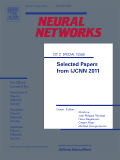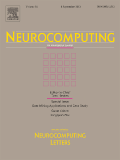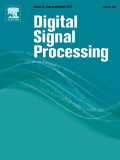
Machine Intelligence Research
metrics 2024
Shaping Tomorrow's Technologies Through Rigorous Research
Introduction
Machine Intelligence Research is a premier academic journal published by SPRINGERNATURE, dedicated to advancing knowledge in the rapidly evolving fields of Artificial Intelligence, Applied Mathematics, and more. With its ISSN 2731-538X and E-ISSN 2731-5398, the journal is recognized for its impact, holding a distinguished position in various Q1 categories for 2023, including Computer Vision and Pattern Recognition and Control and Systems Engineering. Operating under an Open Access model, it ensures that groundbreaking research from China and around the world remains accessible to a global audience, promoting collaboration and innovation. As a beacon for researchers, professionals, and students, Machine Intelligence Research aims to disseminate high-quality research findings, innovative methodologies, and influential theories, thereby shaping the future landscapes of science and technology.
Metrics 2024
 1.68
1.68 6.40
6.40 6.40
6.40 11
11Metrics History
Rank 2024
Scopus
IF (Web Of Science)
JCI (Web Of Science)
Quartile History
Similar Journals

NEURAL NETWORKS
Transforming Insights into Intelligent SolutionsNEURAL NETWORKS, an esteemed journal with the ISSN 0893-6080 and E-ISSN 1879-2782, is published by Pergamon-Elsevier Science Ltd in the United Kingdom. This influential journal, established in 1988 and continuing its publication through 2024, is recognized for its significant contributions to the fields of Artificial Intelligence and Cognitive Neuroscience, ranking in the Q1 category in both disciplines as of 2023. With a strong Scopus rank of #4/115 in Cognitive Neuroscience and #35/350 in Artificial Intelligence, and a commendable percentile of 96th and 90th respectively, NEURAL NETWORKS stands at the forefront of academic research. Researchers, professionals, and students can benefit from the journal's rigorous peer-review process and the dissemination of groundbreaking findings that shape understanding in artificial intelligence methodologies and their cognitive applications. While the journal currently operates under traditional access options, it serves as a vital resource in fostering innovations and cross-disciplinary collaboration.

Frontiers in Artificial Intelligence
Pioneering Insights in Machine Learning and BeyondFrontiers in Artificial Intelligence, published by FRONTIERS MEDIA SA, is a pioneering open-access journal that commenced in 2018, dedicated to advancing the multifaceted field of artificial intelligence. With an impressive Q2 ranking in the category of Artificial Intelligence, it occupies a significant position within the academic community, offering a platform for high-quality, peer-reviewed research. The journal's comprehensive scope encompasses a variety of subfields, including machine learning, robotics, and human-computer interaction, making it an invaluable resource for researchers, professionals, and students alike. As an open-access journal since 2019, it ensures that cutting-edge research is readily available to a global audience, facilitating knowledge sharing and collaboration. With its headquarters in Switzerland and a commitment to scholarly excellence, Frontiers in Artificial Intelligence is at the forefront of the scientific discourse, empowering the next generation of innovations in AI.

CAAI Transactions on Intelligence Technology
Fostering Global Dialogue on Intelligence TechnologyCAAI Transactions on Intelligence Technology is a premier peer-reviewed journal published by WILEY, dedicated to advancing the fields of Artificial Intelligence, Computer Networks and Communications, Computer Vision and Pattern Recognition, Human-Computer Interaction, and Information Systems. Since its inception in 2017, this Open Access journal has rapidly ascended the ranks, achieving Q1 quartile status across multiple categories as of 2023, and is recognized for its rigorous standards and innovative research dissemination, evidenced by impressive Scopus rankings, including Rank #12 in Computer Vision and Pattern Recognition. Through its commitment to providing a platform for high-quality research, the journal invites contributions from scholars globally, fostering a collaborative environment that stimulates intellectual exchange and encourages advancements in intelligent technology. Addressed to researchers, professionals, and students alike, CAAI Transactions on Intelligence Technology serves as a vital resource for those aiming to stay at the forefront of technological innovation.

AI, published by MDPI, is a distinguished open access journal dedicated to advancing the field of artificial intelligence. Since its inception in 2020, the journal has swiftly established itself as a prominent platform for scholarly research, currently ranking in the Q2 category for 2023 within the artificial intelligence sector according to Scopus. With an impressive global reach from its base in Basel, Switzerland, the journal aims to foster innovation and collaboration among researchers, professionals, and students alike, providing a forum to share groundbreaking findings and applications in AI. The journal's commitment to accessibility ensures that research is available to a wide audience, enhancing knowledge dissemination and contributing significantly to the ongoing evolution of artificial intelligence technologies. To explore the latest in AI research, readers can access articles through their open access model, encouraging an inclusive academic environment.

MACHINE VISION AND APPLICATIONS
Unveiling New Dimensions in Pattern Recognition.MACHINE VISION AND APPLICATIONS is a distinguished peer-reviewed journal published by SPRINGER, serving as a vital platform for innovative research in the fields of computer vision, pattern recognition, and their applications within hardware and software systems. Since its inception in 1988, the journal has been at the forefront of disseminating cutting-edge findings and advances in machine vision technologies, significantly contributing to the global academic discourse. With an impressive track record, the journal ranks in the Q2 category across various domains in the 2023 Scopus rankings, reflecting its esteemed position in Computer Science Applications, Computer Vision and Pattern Recognition, Hardware and Architecture, and Software. Although it does not currently offer open access options, MACHINE VISION AND APPLICATIONS remains a critical resource for researchers, professionals, and students eager to explore emerging trends and methodologies in the rapidly evolving landscape of machine vision.

NEUROCOMPUTING
Unlocking the Future of Cognitive ComputingNEUROCOMPUTING is a premier academic journal published by ELSEVIER, specializing in the interdisciplinary fields of Artificial Intelligence, Cognitive Neuroscience, and Computer Science Applications. With an impressive impact factor and a Q1 ranking in its relevant categories for 2023, NEUROCOMPUTING is recognized as a leader in fostering innovative research and providing a platform for ground-breaking studies. The journal’s scope covers the convergence of neural computation and artificial intelligence, making it essential reading for researchers and professionals seeking to explore the latest advancements and applications in these dynamic fields. For those interested in the cutting-edge intersection of neuroscience and computational techniques, NEUROCOMPUTING offers a wealth of knowledge that significantly contributes to both theoretical and practical advancements. The journal is dedicated to publishing high-quality, peer-reviewed articles and is an invaluable resource for students and established scholars alike, looking to stay at the forefront of research trends.

JOURNAL OF COMPUTER AND SYSTEMS SCIENCES INTERNATIONAL
Exploring the Frontiers of Applied Mathematics and ComputingJOURNAL OF COMPUTER AND SYSTEMS SCIENCES INTERNATIONAL, published by PLEIADES PUBLISHING INC, serves as a vital platform in the fields of Applied Mathematics, Computer Networks and Communications, Computer Vision and Pattern Recognition, Control and Systems Engineering, Information Systems, and Software among others. Established in 1993, the journal offers insights into both theoretical and practical advancements within these disciplines, continuously evolving through to 2024. Its current impact is reflected in its Q3 rankings across multiple categories in 2023 and Scopus rankings that position it within the 15th to 33rd percentiles, showcasing its relevance within the academic community. While not an Open Access journal, it maintains accessibility through institutional subscriptions, ensuring that researchers and professionals can engage with high-quality content. The journal is instrumental for those looking to deepen their understanding and contribute to ongoing discourse in computer science and systems sciences, making it an essential resource for students, researchers, and industry practitioners alike.

International Journal on Document Analysis and Recognition
Elevating Standards in Document Recognition ResearchInternational Journal on Document Analysis and Recognition (IJDAR), published by Springer Heidelberg, stands at the forefront of research and advancements in the field of document analysis, computer vision, and pattern recognition. With its ISSN 1433-2833 and E-ISSN 1433-2825, the journal is an essential resource for researchers and practitioners focusing on innovations in automatic document processing, image analysis, and artificial intelligence applications in document retrieval and recognition. Recognized as a Q1 journal in multiple relevant categories, including Computer Science Applications, Computer Vision and Pattern Recognition, and Software, IJDAR boasts impressive Scopus rankings that position it among the top-tier publications in these domains. The journal’s converged publication years from 1998 to 2024 offer a rich repository of knowledge essential for both theoretical and practical advancements, ensuring that researchers, professionals, and students can keep pace with the latest findings and methodologies. Access options may vary, but the journal continuously strives to facilitate the dissemination of high-quality research that contributes significantly to the academic discourse in document analysis and recognition.

ADCAIJ-Advances in Distributed Computing and Artificial Intelligence Journal
Unlocking Potential in Artificial Intelligence and NetworkingADCAIJ - Advances in Distributed Computing and Artificial Intelligence Journal, published by EDICIONES UNIV SALAMANCA, is an esteemed academic journal dedicated to the rapidly evolving fields of artificial intelligence, computer networks, and distributed computing. With its commitment to Open Access since 2012, the journal ensures that cutting-edge research is accessible to a global audience, fostering collaboration and innovation in the scientific community. Based in Spain, ADCAIJ is making significant strides with its current status in the Q3 quartile across various domains, including Artificial Intelligence and Information Systems. Despite its emerging status, it ranks with great potential, providing a platform for researchers to share their findings and contribute to advancements in these critical areas. The journal not only facilitates knowledge dissemination but also encourages interdisciplinary approaches that are crucial for tackling contemporary challenges. As it continues to expand its influence from 2019 through 2024, ADCAIJ is poised to play a key role in shaping future research trajectories and technological applications in its field.

DIGITAL SIGNAL PROCESSING
Innovating Insights in Signal Processing and BeyondDIGITAL SIGNAL PROCESSING is a leading academic journal published by Academic Press Inc Elsevier Science, serving as a vital resource in the fields of applied mathematics, artificial intelligence, signal processing, and electrical engineering. With an impressive set of rankings, including a Q2 designation in multiple categories such as Applied Mathematics and Computer Vision and Pattern Recognition, this journal aims to disseminate high-quality research that addresses both theoretical and practical aspects of digital signal processing. Its rigorous peer-review process ensures the publication of original articles, review papers, and innovative applications, making it an essential platform for researchers and professionals dedicated to advancing this dynamic field. While currently not an open-access journal, it maintains a significant impact factor, reflecting its esteemed position within the academic community. The journal's ongoing commitment to exploring new trends and methodologies positions it at the forefront of digital signal processing research, driving both scholarly inquiry and practical application from 1991 to 2024.